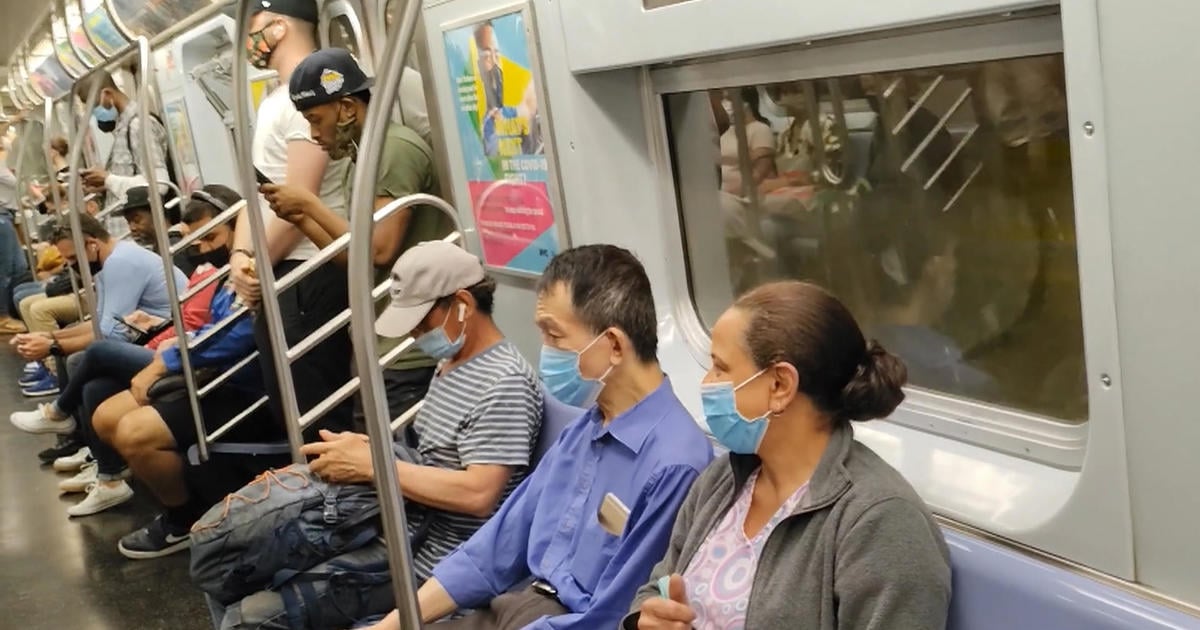In an interview for 60 Minutes, CBS News chief medical correspondent Dr. Jon LaPook posed that question to Linsey Marr, a Virginia Tech University professor specializing in aerosol science.
“They are very helpful in reducing the chances that the person will get COVID because it’s reducing the amount of virus that you would inhale from the air around you,” Marr said about masks.
No mask is 100% effective. An N95, for example, is named as such because it is at least 95 percent efficient at blocking airborne particles when used properly. But even if a mask has an 80% efficiency, Marr said, it still offers meaningful protection.
“That greatly reduces the chance that I’m going to become infected,” Marr said.
Marr said research shows that high-quality masks can block particles that are the same size as those carrying the coronavirus. Masks work, Marr explained, as a filter, not as a sieve. Virus particles must weave around the layers of fibers, and as they do so, they may crash into those fibers and become trapped.
Marr likened it to running through a forest of trees. Walk slowly, and the surrounding is easy to navigate. But being forced through a forest at a high speed increases the likelihood of running into a tree.
“Masks, even cloth masks, do something,” she said.
Not that I expect most people to believe it at this point…



Wide spread lockdowns were an anti-science position that politicians went with to appear to be acting.
Lol. “Anti-science”
The science is super simple.
Virus is transmitted person to person.
If person is not near other person, virus doesn’t get transmitted.
What about that is “anti-science”?
Or, is your complaint actually “my local government leaders did things badly but because I worship team red, I have to blame evil science”?
The science for responding to something like covid wasn’t complete lockdown. It was isolating those at risk, quarantine the infected, do contact tracing, and limit large crowds of people.
Think Mcfly, think.
How do you quarantine the infected if you can’t identify the infected until they show symptoms?
You can’t science good.
It was the worst public safety decision I have witnessed in the United States. It made a bad situation worse.
The issue is not with lock downs, the issue is a piss poor government handling of the situation. Leaving everything “open” for business would have quite literally collapsed sectors of services to the point of potentially snow balling into something worse.
Everything should have remained open within countries, international borders should have closed for six months. International ports could operate with certain restrictions to prevent cross contamination.
Hospitals were on the verge of collapse WITH lock downs. Can you imagine how bad it would have been if everything remained open? How many people died because of covid WITH lock downs active? Hospitals fail because they are overwhelmed, and it spit balls from there. I believe your suggestion would have been catastrophic at the least.
Hospitals would have been regardless. Lockdowns didn’t decrease spread because churches were the number one location for spread and they were exempt.
Lockdowns absolutely decreased spread. https://www.gavi.org/vaccineswork/did-covid-lockdowns-work-heres-what-we-know-two-years
We are of course basing this on what we know. Had we done no lock downs, no masking. We can only guess at what would have happened.
Unfortunately religion prevented any lockdown from being a success.
https://theconversation.com/faith-in-numbers-is-church-attendance-linked-to-higher-rates-of-coronavirus-160527
That just says church causes higher chance of spread, not that lock downs don’t work.
Fortunately, there were places where lockdowns were a fantastic success.
2020: 7 deaths out of 2.6 million
2021: 0 deaths out of 2.6 million, AND basically completely open
Not the USA, of course.
Because it was badly done in the USA. Half-assed.
Do it properly, and it worked well.